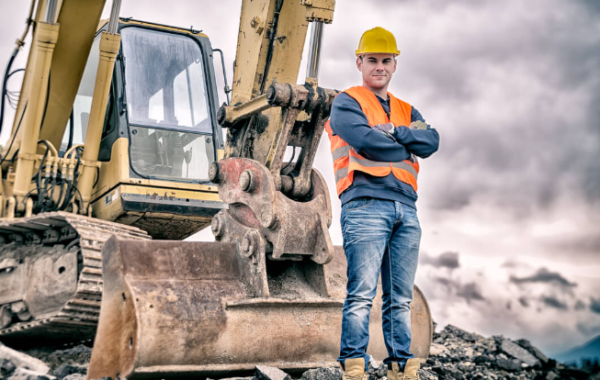Equipment Financing for Construction Companies: Building Success Brick by Brick


Australia boasts a robust construction sector, contributing significantly to the nation’s economy. The construction industry, valued at US$112 billion, contributed around 9% of the country’s GDP, making it one of the essential sectors in Australia’s economic landscape. There is increased demand for infrastructure, residential properties, commercial spaces, and public facilities. This demand underscores the need for construction companies to have access to modern and efficient equipment.
Equipment financing plays a pivotal role in enabling companies to acquire the tools they need to build success, one brick at a time. This article explores the importance of equipment financing in Australia for construction firms and how it contributes to their growth and profitability.
Contents [show]
Access to State-of-the-Art Equipment
Construction equipment and machinery are constantly evolving, becoming more efficient, eco-friendly, and technologically advanced. Equipment financing allows construction companies to stay up-to-date with the latest innovations by providing access to state-of-the-art equipment. This, in turn, enhances productivity, reduces operating costs, and ensures that projects are completed efficiently.
Preserve Working Capital
Purchasing construction equipment outright can strain a company’s working capital. Equipment financing solutions, such as leasing or equipment loans, enable construction firms to conserve their capital for other essential expenses, such as payroll, materials, and overhead costs. This financial flexibility ensures that the company remains financially stable and capable of taking on more projects.
Tailored Financing Options
Equipment financing offers flexibility in terms of repayment options. Construction companies can choose from a range of financing structures, such as fixed-rate loans, adjustable-rate loans, and lease agreements. These options can be tailored to match the company’s financial goals and cash flow, making it easier to manage expenses and allocate resources strategically.
Tax Benefits
Many equipment financing arrangements come with tax advantages for construction companies. Depending on local tax laws and regulations, firms may be eligible for deductions, depreciation benefits, or tax credits associated with equipment financing. These financial incentives can significantly reduce the overall cost of equipment acquisition.
Reduced Maintenance and Repair Costs
New equipment acquired through financing is often covered by warranties, which can lead to reduced maintenance and repair expenses. Additionally, modern machinery tends to be more reliable and energy-efficient, resulting in lower operational costs over time. This contributes to the company’s profitability and competitiveness in the construction market.
Improved Project Efficiency
High-quality, well-maintained equipment is crucial for project efficiency. Construction companies that invest in modern equipment through financing can complete tasks faster, meet project deadlines, and reduce downtime due to equipment breakdowns. These advantages enhance the company’s reputation and client satisfaction.
Competitive Advantage
In the construction industry, the ability to offer a wide range of services and meet clients’ demands is a significant competitive advantage. Equipment financing empowers construction companies to diversify their offerings and take on a variety of projects. Whether it’s earthmoving, excavation, or specialised construction, having the right equipment at hand positions the company as a versatile and reliable partner.
Scalability
As construction companies grow, their equipment needs often change. Equipment financing provides the flexibility to scale operations up or down as required. Firms can add or replace equipment without the financial burden of purchasing new machinery outright. This adaptability is essential for meeting evolving market demands.
Sustainability
Modern construction equipment is designed with sustainability in mind, offering features that reduce emissions, energy consumption, and environmental impact. Equipment financing allows construction firms to invest in eco-friendly machinery, aligning their operations with sustainability goals and meeting regulatory requirements.
Conclusion
It is evident that equipment financing in Australia is a critical element of success for construction companies. Equipment financing is a cornerstone of success for construction companies, enabling them to access the latest technology, preserve capital, and operate efficiently. In an ever-evolving industry, equipment financing is the cornerstone that allows construction companies to construct a brighter future.





